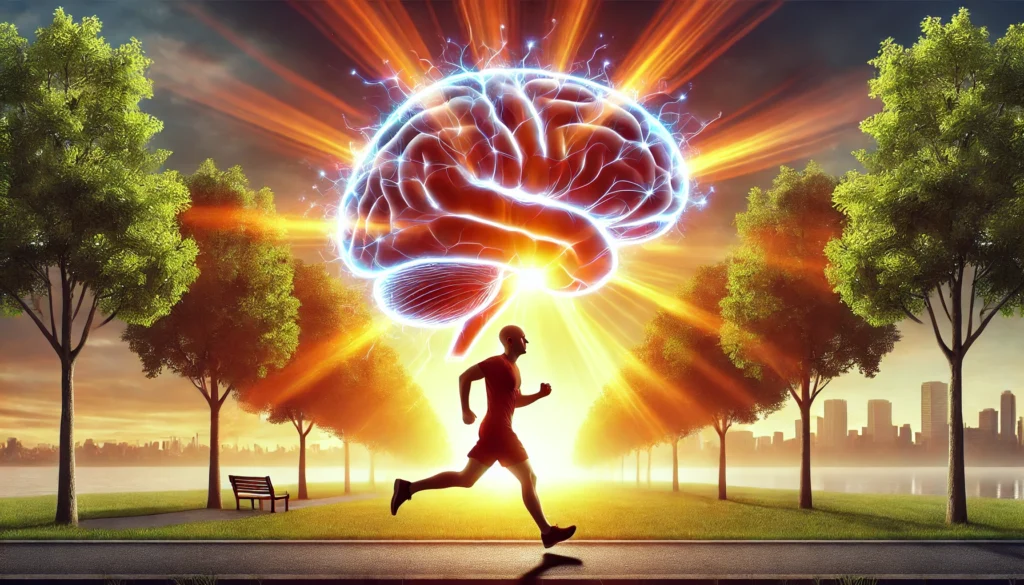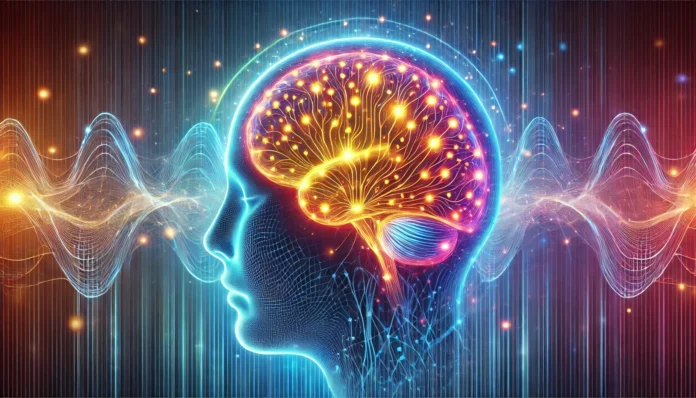Introduction: The Power of Exercise for Cognitive Health
The connection between physical exercise and mental performance has been extensively researched, with findings consistently affirming that regular movement profoundly benefits the brain. In an era where cognitive demands are high, whether in academics, the workplace, or daily problem-solving, ensuring optimal brain function is essential. Exercise is often celebrated for its physical advantages, but its impact on mental clarity, memory retention, and focus is just as critical. Understanding the brain benefits of exercise can inspire individuals to adopt consistent physical activity routines that enhance cognitive abilities and overall well-being.
You may also like: How Does Exercise Improve Mental Health? Science-Backed Benefits You Should Know
The phrase “exercise helps focus” is not just a general assertion; it is backed by substantial scientific evidence showing that movement increases blood flow to the brain, stimulates neurogenesis, and promotes neuroplasticity. Engaging in daily exercise improves mental performance by supporting various cognitive processes, making it an indispensable tool for students, professionals, and anyone seeking sharper mental acuity. Additionally, exercise for mental clarity is a proven approach to combating brain fog, improving concentration, and enhancing problem-solving skills. With these profound advantages in mind, let’s explore the ten brain-boosting benefits of exercise and how they contribute to a sharper, more resilient mind.
Exercise Enhances Neurogenesis and Brain Plasticity
One of the most remarkable aspects of exercise is its ability to stimulate neurogenesis—the formation of new neurons in the brain. For years, scientists believed that the adult brain had a fixed number of neurons, but research now confirms that neurogenesis continues throughout life, particularly in the hippocampus, the region responsible for memory and learning. Regular physical activity accelerates this process by increasing levels of brain-derived neurotrophic factor (BDNF), a protein that supports neuron growth and survival.
Neuroplasticity, the brain’s ability to reorganize and form new neural connections, is also significantly enhanced through exercise. This adaptability is crucial for learning new skills, recovering from brain injuries, and maintaining cognitive function as we age. Studies indicate that aerobic activities, such as running, cycling, and swimming, play a vital role in strengthening these neural pathways. As a result, individuals who engage in consistent exercise experience improved problem-solving abilities, faster learning speeds, and greater adaptability to new situations. This mechanism underscores why exercise helps focus and enhances cognitive flexibility in daily life.
Improved Blood Flow and Oxygenation to the Brain
The brain requires a constant supply of oxygen and nutrients to function optimally. Exercise plays a key role in enhancing cerebral circulation, ensuring that neurons receive the resources they need to perform efficiently. When physical activity increases heart rate, blood flow to the brain rises, delivering oxygen and glucose—both essential for energy production and cognitive processes.
Enhanced circulation also facilitates the removal of metabolic waste and toxins, which, if accumulated, can contribute to cognitive decline and neurodegenerative diseases. This increased blood flow has been shown to improve reaction times, working memory, and overall cognitive agility. Consequently, engaging in daily exercise improves mental performance by maintaining a healthy vascular system that supports long-term brain function. Whether through brisk walking, jogging, or high-intensity interval training, these activities ensure that the brain remains well-nourished and primed for peak performance.
Reduction of Stress and Anxiety for Mental Clarity
Modern lifestyles often contribute to chronic stress and anxiety, which can impair cognitive function and decision-making abilities. Fortunately, exercise acts as a powerful stress regulator by reducing levels of cortisol, the body’s primary stress hormone, while simultaneously promoting the release of endorphins, natural chemicals that enhance mood and relaxation.
Engaging in regular exercise for mental clarity helps individuals manage stress more effectively, improving their ability to focus on tasks without becoming overwhelmed. Additionally, movement stimulates the production of gamma-aminobutyric acid (GABA), a neurotransmitter that calms the nervous system, reducing excessive neural activity associated with anxiety. This effect explains why people often experience heightened clarity and tranquility after a workout session. By incorporating movement into daily routines, individuals can cultivate a resilient mind that is less susceptible to stress-induced cognitive decline.

Enhanced Memory Retention and Learning Abilities
Memory retention is fundamental to academic and professional success, and exercise has been identified as a key factor in improving this cognitive function. Research indicates that aerobic activities increase the volume of the hippocampus, the brain’s memory center, and enhance synaptic plasticity, which facilitates more effective learning and recall.
Physical activity also supports the consolidation of information by improving sleep quality—a crucial component of memory processing. Studies reveal that individuals who engage in regular exercise before or after learning new material exhibit better retention and recall capabilities. Whether preparing for an important exam or mastering a new skill at work, incorporating exercise into daily routines can significantly bolster cognitive performance. This reinforces the notion that daily exercise improves mental performance by strengthening the neurological foundations of memory and learning.
Boosted Executive Function and Decision-Making Skills
Executive function encompasses a range of cognitive abilities, including planning, problem-solving, and impulse control. These skills are essential for productivity, goal-setting, and effective decision-making. Exercise enhances executive function by stimulating the prefrontal cortex, the region of the brain responsible for higher-order thinking.
Regular movement increases dopamine levels, which improve motivation and focus, as well as norepinephrine, which heightens alertness. These neurochemical changes enable individuals to make more calculated decisions, resist distractions, and manage time effectively. This benefit is particularly valuable in professional and academic settings, where sharp cognitive function is critical for success. As evidence suggests, exercise helps focus by fine-tuning the brain’s ability to prioritize and execute complex tasks efficiently.
Alleviation of Brain Fog and Mental Fatigue
Brain fog—a common issue characterized by confusion, forgetfulness, and lack of concentration—often results from sedentary habits, poor sleep, and chronic stress. Fortunately, exercise provides an effective remedy by enhancing cerebral blood flow, regulating neurotransmitter levels, and promoting deep, restorative sleep.
By engaging in consistent physical activity, individuals experience sustained mental energy, allowing them to stay sharp throughout the day. Exercise for mental clarity ensures that cognitive processes remain fluid, preventing sluggishness and cognitive lapses. Whether incorporating yoga, walking breaks, or full-body workouts, maintaining an active lifestyle significantly reduces the frequency and intensity of mental fatigue.
Increased Creativity and Cognitive Flexibility
Creativity is essential for innovation and problem-solving, and exercise has been shown to enhance this aspect of cognition. Activities such as dancing, swimming, and even leisurely nature walks activate the brain’s default mode network (DMN), which is linked to spontaneous thinking and creative insights.
Furthermore, cardiovascular exercise promotes divergent thinking—the ability to generate multiple solutions to a problem. Studies indicate that individuals who engage in movement-based activities demonstrate higher levels of originality and flexibility in their thought processes. By fostering a dynamic and adaptable mind, exercise ensures that individuals can approach challenges with fresh perspectives and inventive solutions.

Frequently Asked Questions (FAQ): Brain Benefits of Exercise
How does exercise help focus and concentration?
Exercise helps focus by increasing blood flow to the brain, which enhances oxygen and nutrient delivery to neurons responsible for cognitive functions. Physical activity also stimulates the release of neurotransmitters like dopamine and norepinephrine, which play crucial roles in attention and alertness. Studies suggest that individuals who engage in regular physical exercise experience improved task-switching abilities and sustained concentration for extended periods. The impact of exercise on focus is particularly beneficial for students and professionals who require sustained mental effort throughout the day. By incorporating exercise into daily routines, individuals can enhance their cognitive stamina and minimize distractions caused by fatigue or stress.
What are the top brain benefits of exercise that people often overlook?
Beyond improving memory and cognitive function, one of the lesser-known brain benefits of exercise is its ability to enhance creative thinking and problem-solving skills. Engaging in physical activity increases activity in the default mode network (DMN), a brain region associated with spontaneous thought and ideation. Additionally, exercise reduces inflammation and oxidative stress, both of which are linked to neurodegenerative conditions and cognitive decline. Another overlooked benefit is the role of physical movement in improving emotional regulation, allowing individuals to manage stress and anxiety more effectively. These combined effects contribute to a well-rounded cognitive enhancement, reinforcing why exercise is a vital tool for mental acuity and resilience.
How does daily exercise improve mental performance in the long term?
The long-term effects of daily exercise on mental performance go beyond immediate cognitive boosts. Over time, regular movement leads to structural changes in the brain, including an increase in the volume of the hippocampus, a region essential for learning and memory. Daily exercise improves mental performance by supporting synaptic plasticity, which allows neurons to communicate more efficiently. This, in turn, enhances problem-solving skills, adaptability, and critical thinking. Furthermore, individuals who maintain an active lifestyle well into their later years are less likely to experience age-related cognitive decline, making exercise an investment in lifelong mental sharpness.
Can exercise help with brain fog and mental fatigue?
Yes, exercise for mental clarity is highly effective in reducing brain fog and restoring cognitive sharpness. Brain fog often results from poor circulation, stress, or sleep deprivation, all of which can be mitigated through physical activity. Engaging in aerobic exercise increases oxygen flow to the brain, which supports the removal of metabolic waste that may contribute to sluggish thinking. Additionally, exercise triggers the production of endorphins, which counteract fatigue and enhance overall mental energy. Even a short walk or light stretching can be enough to reinvigorate the brain and restore focus, making movement an essential tool for overcoming cognitive sluggishness.
What type of exercise is most effective for cognitive enhancement?
While all forms of exercise offer cognitive benefits, aerobic activities such as running, cycling, and swimming are particularly effective for brain health. These exercises increase cardiovascular efficiency, ensuring a steady supply of oxygen-rich blood to the brain. Strength training also plays a crucial role in cognitive function by promoting the release of growth factors that support neuron survival and synaptic strength. Additionally, mind-body exercises such as yoga and tai chi improve mental clarity by enhancing mindfulness and reducing stress-related cognitive interference. A combination of these exercise forms provides the most comprehensive approach to optimizing brain function.
Does the time of day impact the cognitive benefits of exercise?
The timing of exercise can influence its cognitive benefits, though the best time largely depends on individual schedules and preferences. Morning workouts can boost cognitive function for the day ahead, as exercise helps focus by increasing dopamine and serotonin levels. Midday exercise can act as a mental reset, reducing fatigue and improving productivity for the second half of the day. Evening workouts can aid in stress reduction and promote restful sleep, both of which contribute to better cognitive performance the following day. While exercise at any time is beneficial, aligning movement with one’s daily cognitive demands can maximize its positive effects.
How does exercise impact neurogenesis and brain plasticity?
Exercise enhances neurogenesis, the process by which new neurons are formed, particularly in the hippocampus, the brain’s center for learning and memory. Physical activity also promotes brain plasticity by strengthening existing neural pathways and encouraging the formation of new connections. This adaptability is crucial for learning new skills, recovering from injuries, and maintaining cognitive agility as we age. The release of brain-derived neurotrophic factor (BDNF) during exercise plays a key role in these processes, supporting neuron survival and function. By engaging in regular movement, individuals can ensure their brains remain adaptable and resilient to cognitive challenges.
Can exercise help with attention disorders such as ADHD?
Exercise has been found to be highly beneficial for individuals with attention deficit hyperactivity disorder (ADHD). Physical activity increases dopamine and norepinephrine levels, neurotransmitters that play a critical role in focus and impulse control. Research suggests that children and adults with ADHD who engage in regular exercise experience improved attention spans, reduced hyperactivity, and better emotional regulation. Activities that require coordination, such as martial arts, dance, or team sports, are particularly effective as they engage multiple cognitive processes simultaneously. While exercise alone may not replace medication or therapy, it serves as a valuable complementary strategy for managing ADHD symptoms.
What role does exercise play in preventing neurodegenerative diseases?
Engaging in regular exercise for mental clarity and cognitive preservation is one of the most effective strategies for reducing the risk of neurodegenerative diseases such as Alzheimer’s and Parkinson’s. Exercise helps by reducing chronic inflammation, improving insulin sensitivity, and promoting healthy circulation—all of which are factors linked to brain health. Research indicates that individuals who maintain an active lifestyle are significantly less likely to develop cognitive impairment in later years. Additionally, physical activity enhances the brain’s ability to clear out toxic proteins, such as beta-amyloid plaques, which contribute to Alzheimer’s disease. These protective mechanisms highlight why movement should be a lifelong commitment for brain longevity.
How soon can someone expect to experience cognitive improvements from exercise?
The timeline for cognitive improvements from exercise varies based on individual factors such as fitness level, exercise type, and consistency. Many people experience immediate boosts in focus and mental clarity within 30 minutes of moderate aerobic activity due to increased blood flow and neurotransmitter release. Over several weeks, individuals may notice enhanced memory retention, better problem-solving abilities, and improved mood regulation. Long-term benefits, such as structural brain changes and reduced cognitive decline, typically develop after months or years of consistent physical activity. The key to maximizing these benefits is to make exercise a sustainable and enjoyable part of daily life.

Conclusion: Integrating Exercise for Lifelong Cognitive Health
The overwhelming body of research supporting the brain benefits of exercise underscores its necessity for optimal cognitive function. From enhancing memory retention and boosting executive function to alleviating stress and promoting mental clarity, physical activity remains a non-negotiable component of a well-rounded lifestyle. By understanding how daily exercise improves mental performance, individuals can make informed decisions to prioritize movement and reap its enduring advantages.
Incorporating exercise into daily routines does not require drastic changes; even moderate physical activity, such as brisk walking or yoga, yields substantial cognitive benefits. The key is consistency—engaging in movement regularly to sustain brain health and resilience. As more people embrace exercise as a tool for mental sharpness, they will experience enhanced focus, improved decision-making skills, and a sharper memory well into their later years. By making exercise a lifelong commitment, individuals can secure a healthier, more cognitively vibrant future.
brain health exercises, cognitive function improvement, mental performance enhancement, physical activity for brain health, neuroplasticity and exercise, exercise for sharper thinking, boosting memory with movement, focus improvement techniques, brain fog remedies, best workouts for mental clarity, stress reduction through exercise, aerobic activity for cognition, improving concentration naturally, neurogenesis and fitness, exercise and mental agility, workout benefits for the mind, mindfulness and physical activity, fitness for cognitive longevity, movement for brain power, daily habits for mental sharpness
Further Reading:
Brain exercises to improve memory, cognition, and creativity
Physical Activity Boosts Brain Health
5 Exercises to Boost Your Brain: Best for Mental Sharpness
Disclaimer
The information contained in this article is provided for general informational purposes only and is not intended to serve as medical, legal, or professional advice. While Health11News strives to present accurate, up-to-date, and reliable content, no warranty or guarantee, expressed or implied, is made regarding the completeness, accuracy, or adequacy of the information provided. Readers are strongly advised to seek the guidance of a qualified healthcare provider or other relevant professionals before acting on any information contained in this article. Health11News, its authors, editors, and contributors expressly disclaim any liability for any damages, losses, or consequences arising directly or indirectly from the use, interpretation, or reliance on any information presented herein. The views and opinions expressed in this article are those of the author(s) and do not necessarily reflect the official policies or positions of Health11News.


